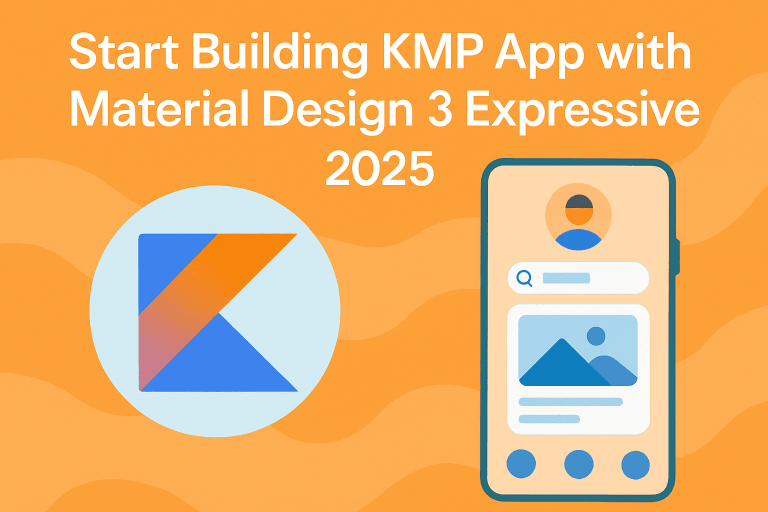
Start Building KMP App with Material Design 3 Expressive – 2025
Introduction: Transform Your Cross-Platform Development with Material Design 3 Are you ready to revolutionize your mobile development workflow? Building Kotlin Multiplatform (KMP) apps with Material Design 3 Expressive isn’t just a trend—it’s the future of efficient, beautiful cross-platform development. As an Android developer working with Kotlin, you’re perfectly positioned to leverage this powerful combination that delivers native performance with stunning, adaptive UIs across multiple platforms. Material Design 3 represents Google’s

Google I/O 2025: A New Era for KMP and Android, Powered by AI
Alright, fellow developers, let’s dive into Google I/O 2025. If you blinked, you might have missed a few things, because Google really brought the heat this year. It felt like every other sentence had “AI” in it, and honestly, it was pretty exciting. But beyond the AI buzz, there were some seriously cool updates for Kotlin Multiplatform (KMP) and Android that are going to change how we build stuff. This

What’s New in Jetpack Compose 1.8: Autofill, Text, Visibility & More (2025)
Jetpack Compose 1.8 rolls out handy features like Autofill integration, slick Text enhancements including auto-sizing and new overflow options, and efficient Visibility Tracking, alongside the usual performance boosts. Updating your dependencies brings faster UI and useful new tools to your Android development workflow. Alright, let’s dive into the latest goodies Google has packed into Jetpack Compose with the 1.8 release (around April ’25). If you like your apps smooth and

Reified Keyword in Kotlin Explained: Unlock Type Safety
Reified Keyword in Kotlin: Simplify Your Generic Functions Kotlin’s reified keyword lets your generic functions know the actual type used at runtime, dodging the common issue of type erasure found in Java and standard Kotlin generics. This means you can check and cast types inside generic functions without extra workarounds. The Problem: Type Erasure in Generics Ever written a generic function in Kotlin (or Java) and tried to find out what T actually is inside that

Android Studio Cloud: Develop Android Apps Anywhere (2025)
Android Studio Cloud: Ditch the Setup, Code Anywhere (Seriously!) Alright, fellow Android devs, gather ’round the virtual water cooler. Remember those days (maybe even *this morning*?) staring hypnotized at the Gradle build progress bar, whispering sweet nothings to your CPU, begging it to finish faster? Or the distinct aroma of melting plastic as your laptop fan achieves liftoff velocity just trying to open a medium-sized project? Yeah, me too. We’ve

Firebase Studio & Google’s AI Dev Tools Guide
What is Firebase Studio? Firebase Studio is a cloud-based development environment that helps you build, test, and deploy full-stack AI applications from your browser. Launched at the recent Google Cloud Next event on April 8, 2025, it’s designed to streamline app development with AI assistance, especially using Google’s Gemini AI. It evolved from Project IDX, now fully integrated into Firebase, offering a unified experience for developers of all levels. Key
